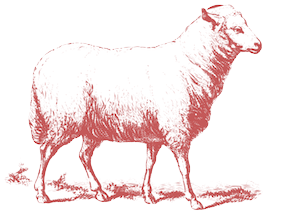We here in Georgia have had seven years of drought. Serious, for real, drought. Fertility plundering drought. The kind of drought that when it does rain, the delicate topsoil is so dry, the roots of the plants so frail that it simply washes away with nothing to hold it in place. It was the kind of drought where manure from our animals, rich with vital nutrients and potential to restore fertility shrivels, dries up, and blows away in the wind. It was the kind of drought that forced cattlemen to buy hay until the money ran out, then to sell their entire herds to the feedlot, abandoning their life's work. It was the kind of drought that caused vegetable crops to wither and succumb to disease. It was the kind of drought where folks worried about the long-term viability of ground water as a resource. It was the kind of drought that one summer, a few years ago, a family was killed in their car as a tree fell on them. The roots of the great oak had become so shallow from years of too little rain that when it rained in earnest for a few short hours, the tree had no grip on the softening earth.
So it was.
But not anymore. The relief has been more generous than any of us could have imagined. Sweet, summer rain, like God's own mercy. Only now, as summer wanes and the mercy continues day after day, there are some who scorn. Now, it is the special privilege of the farmer to complain about the weather. It is never perfect. It is never as we would have it be for our plants and animals in our custody. But mother nature always takes the long view. Our problems as farmers are present and near, despite the fact that a larger problem is resolving for the longer good.
Many of our vegetable farmer friends have been hit hard. Real hard. Tomatoes and peppers are late. Melons rot before they can be picked. Bugs gorge themselves on the overly lush leaves of crops. What little does come out of the field tastes watered down. Farmers can hardly work for the mud: delicate little plant starts can't survive in sodden ground and tractors slip and worse, compact the beds. Our farmer friend Darby of the magnificent Sun Dog Farm writes beautifully about the struggle the rain has caused her burgeoning vegetable operation. It's a mess. A mess that has demanded that customers step up and show up to often wet farmers' markets and shell out for the goods that are there. It is, in many ways, a test of the loyalty of customers to see their farmers through the rough patches and a test of the whole system of local agriculture. It is only sustainable if patrons sustain it, even when the tomatoes are infrequent and imperfect.
For us, however, and I say this with the deepest sympathy and respect to my suffering vegetable farmer friends, the rain has been amazing. Grass loves rain. It can't get enough of it. Our farmhand Pete recently noticed how a hose that had been left in the pasture for about a week had been devoured by the vigorous sward, making it nearly impossible to extract. Roots deepen and expand. Leaves turn lush, thick, and palatable to our sheep. The health of our sheep improves, for while the foul barber-pole worm that kills our animals loves the rain, the abundant, lush grass gives the ewes the nutrients they need to help fight it. We can't keep up with the growth. Plants grow tall and seed heads form before the sheep have finished eating the previous day's ration. This time last year we were buying hay and making sacrifice paddocks. The world felt frighteningly arid. This year the rain has made those sacrifice paddocks rich and green long before we thought they would.
We are excited. Organic matter produced by our sheep is soaking into the soil (not washing away), enriching it and building it, putting back what the poor farming practices of our forebears took away. More years like this will help us build our soil faster, and the more our soil is built, the more drought tolerance we can achieve for when the dryness returns (and it will always return). Organic matter, lively with bacteria and fungus, held together by a deep and broad network of roots, its surface utterly opaque with grass, is a sponge. It holds water. Water does not evaporate away off a bare surface. Fertility increases. Agricultural stability increases. The land, as Joel Salatin puts it, builds forgiveness (starts at 6:00 mark). And lord knows, we farmers could use some forgiveness.
And so I implore you, my vegetable-growing friends: have faith. Take the rain as a sign of good things to come. Take it as a sign that the world wants balance: that the long view bends towards stability, fertility, and abundance. Think on how a year or two of rain has the power to undo seven of drought. And to my good food eating friends, I implore you: have the tenacity to support us all through nature's ebbs and flows. Know that buying a blemished tomato this year is an investment in the perfect tomatoes to come. It is an investment in the process of restoration. Forgive the farmer her imperfect fruit and buy it anyway. Take the long view. Be the one who builds forgiveness into the system.

